文章目录
- 结构体
- 操作函数
- 支持的AVCodecParser
这个模块是AVCodec中的子模块,专门用来提前解析码流的元数据,为后面的解码做准备,这一点对cuda-NVdec非常明显,英伟达解码器的元数据解析是放在CPU上的,所以就非常依赖这个解析模块。
FFmpeg中有很多现成的parser
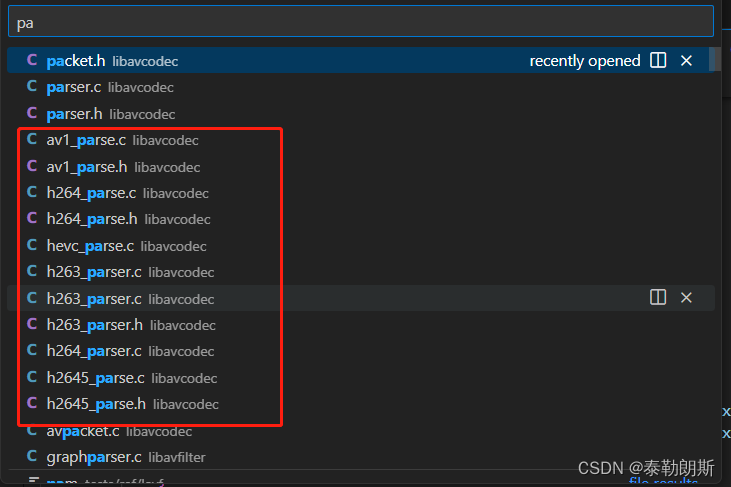
结构体
下面是它的上下文
typedef struct AVCodecParserContext {
void *priv_data;
const struct AVCodecParser *parser;
int64_t frame_offset; /* offset of the current frame */
int64_t cur_offset; /* current offset
(incremented by each av_parser_parse()) */
int64_t next_frame_offset; /* offset of the next frame */
/* video info */
int pict_type; /* XXX: Put it back in AVCodecContext. */
/**
* This field is used for proper frame duration computation in lavf.
* It signals, how much longer the frame duration of the current frame
* is compared to normal frame duration.
*
* frame_duration = (1 + repeat_pict) * time_base
*
* It is used by codecs like H.264 to display telecined material.
*/
int repeat_pict; /* XXX: Put it back in AVCodecContext. */
int64_t pts; /* pts of the current frame */
int64_t dts; /* dts of the current frame */
/* private data */
int64_t last_pts;
int64_t last_dts;
int fetch_timestamp;
#define AV_PARSER_PTS_NB 4
int cur_frame_start_index;
int64_t cur_frame_offset[AV_PARSER_PTS_NB];
int64_t cur_frame_pts[AV_PARSER_PTS_NB];
int64_t cur_frame_dts[AV_PARSER_PTS_NB];
int flags;
#define PARSER_FLAG_COMPLETE_FRAMES 0x0001
#define PARSER_FLAG_ONCE 0x0002
/// Set if the parser has a valid file offset
#define PARSER_FLAG_FETCHED_OFFSET 0x0004
#define PARSER_FLAG_USE_CODEC_TS 0x1000
int64_t offset; ///< byte offset from starting packet start
int64_t cur_frame_end[AV_PARSER_PTS_NB];
/**
* Set by parser to 1 for key frames and 0 for non-key frames.
* It is initialized to -1, so if the parser doesn't set this flag,
* old-style fallback using AV_PICTURE_TYPE_I picture type as key frames
* will be used.
*/
int key_frame;
// Timestamp generation support:
/**
* Synchronization point for start of timestamp generation.
*
* Set to >0 for sync point, 0 for no sync point and <0 for undefined
* (default).
*
* For example, this corresponds to presence of H.264 buffering period
* SEI message.
*/
int dts_sync_point;
/**
* Offset of the current timestamp against last timestamp sync point in
* units of AVCodecContext.time_base.
*
* Set to INT_MIN when dts_sync_point unused. Otherwise, it must
* contain a valid timestamp offset.
*
* Note that the timestamp of sync point has usually a nonzero
* dts_ref_dts_delta, which refers to the previous sync point. Offset of
* the next frame after timestamp sync point will be usually 1.
*
* For example, this corresponds to H.264 cpb_removal_delay.
*/
int dts_ref_dts_delta;
/**
* Presentation delay of current frame in units of AVCodecContext.time_base.
*
* Set to INT_MIN when dts_sync_point unused. Otherwise, it must
* contain valid non-negative timestamp delta (presentation time of a frame
* must not lie in the past).
*
* This delay represents the difference between decoding and presentation
* time of the frame.
*
* For example, this corresponds to H.264 dpb_output_delay.
*/
int pts_dts_delta;
/**
* Position of the packet in file.
*
* Analogous to cur_frame_pts/dts
*/
int64_t cur_frame_pos[AV_PARSER_PTS_NB];
/**
* Byte position of currently parsed frame in stream.
*/
int64_t pos;
/**
* Previous frame byte position.
*/
int64_t last_pos;
/**
* Duration of the current frame.
* For audio, this is in units of 1 / AVCodecContext.sample_rate.
* For all other types, this is in units of AVCodecContext.time_base.
*/
int duration;
enum AVFieldOrder field_order;
/**
* Indicate whether a picture is coded as a frame, top field or bottom field.
*
* For example, H.264 field_pic_flag equal to 0 corresponds to
* AV_PICTURE_STRUCTURE_FRAME. An H.264 picture with field_pic_flag
* equal to 1 and bottom_field_flag equal to 0 corresponds to
* AV_PICTURE_STRUCTURE_TOP_FIELD.
*/
enum AVPictureStructure picture_structure;
/**
* Picture number incremented in presentation or output order.
* This field may be reinitialized at the first picture of a new sequence.
*
* For example, this corresponds to H.264 PicOrderCnt.
*/
int output_picture_number;
/**
* Dimensions of the decoded video intended for presentation.
*/
int width;
int height;
/**
* Dimensions of the coded video.
*/
int coded_width;
int coded_height;
/**
* The format of the coded data, corresponds to enum AVPixelFormat for video
* and for enum AVSampleFormat for audio.
*
* Note that a decoder can have considerable freedom in how exactly it
* decodes the data, so the format reported here might be different from the
* one returned by a decoder.
*/
int format;
} AVCodecParserContext;
下面是插件接口的入口。
如果你要实现一个自己的parse,只要简单的重写下面四个函数就可以了。
typedef struct AVCodecParser {
int codec_ids[7]; /* several codec IDs are permitted */
int ;
int (*parser_init)(AVCodecParserContext *s);
/* This callback never returns an error, a negative value means that
* the frame start was in a previous packet. */
int (*parser_parse)(AVCodecParserContext *s,
AVCodecContext *avctx,
const uint8_t **poutbuf, int *poutbuf_size,
const uint8_t *buf, int buf_size);
void (*parser_close)(AVCodecParserContext *s);
int (*split)(AVCodecContext *avctx, const uint8_t *buf, int buf_size);
} AVCodecParser;
特别注意上面的priv_data_size是AVCodecParserContext中的priv_data,这里面就是保存各种元信息。比如说对于h264来说,里面保存的就是:
static av_cold int init(AVCodecParserContext *s)
{
H264ParseContext *p = s->priv_data;
...
return 0;
}
其实就是sps,pps,sei的值
typedef struct H264ParseContext {
ParseContext pc;
H264ParamSets ps;
H264DSPContext h264dsp;
H264POCContext poc;
H264SEIContext sei;
int is_avc;
int nal_length_size;
int got_first;
int picture_structure;
uint8_t parse_history[6];
int parse_history_count;
int parse_last_mb;
int64_t reference_dts;
int last_frame_num, last_picture_structure;
} H264ParseContext;
比如h264就是重写了下面三个函数接口。
const AVCodecParser ff_h264_parser = {
.codec_ids = { AV_CODEC_ID_H264 },
.priv_data_size = sizeof(H264ParseContext),
.parser_init = init,
.parser_parse = h264_parse,
.parser_close = h264_close,
};
操作函数
下面是操作函数,第一个是列出所有的parser
/**
* Iterate over all registered codec parsers.
*
* @param opaque a pointer where libavcodec will store the iteration state. Must
* point to NULL to start the iteration.
*
* @return the next registered codec parser or NULL when the iteration is
* finished
*/
const AVCodecParser *av_parser_iterate(void **opaque);
第二个是初始化parser
AVCodecParserContext *av_parser_init(int codec_id);
第三个是最重要的,也就是解析pkt
/**
* Parse a packet.
*
* @param s parser context.
* @param avctx codec context.
* @param poutbuf set to pointer to parsed buffer or NULL if not yet finished.
* @param poutbuf_size set to size of parsed buffer or zero if not yet finished.
* @param buf input buffer.
* @param buf_size buffer size in bytes without the padding. I.e. the full buffer
size is assumed to be buf_size + AV_INPUT_BUFFER_PADDING_SIZE.
To signal EOF, this should be 0 (so that the last frame
can be output).
* @param pts input presentation timestamp.
* @param dts input decoding timestamp.
* @param pos input byte position in stream.
* @return the number of bytes of the input bitstream used.
*
* Example:
* @code
* while(in_len){
* len = av_parser_parse2(myparser, AVCodecContext, &data, &size,
* in_data, in_len,
* pts, dts, pos);
* in_data += len;
* in_len -= len;
*
* if(size)
* decode_frame(data, size);
* }
* @endcode
*/
int av_parser_parse2(AVCodecParserContext *s,
AVCodecContext *avctx,
uint8_t **poutbuf, int *poutbuf_size,
const uint8_t *buf, int buf_size,
int64_t pts, int64_t dts,
int64_t pos);
最后一个是close parser
void av_parser_close(AVCodecParserContext *s);
下面是一个用例
int main(int argc, char **argv)
{
const char *filename, *outfilename;
const AVCodec *codec;
AVCodecParserContext *parser;
AVCodecContext *c= NULL;
FILE *f;
AVFrame *frame;
uint8_t inbuf[INBUF_SIZE + AV_INPUT_BUFFER_PADDING_SIZE];
uint8_t *data;
size_t data_size;
int ret;
AVPacket *pkt;
if (argc <= 2) {
fprintf(stderr, "Usage: %s <input file> <output file>\n"
"And check your input file is encoded by mpeg1video please.\n", argv[0]);
exit(0);
}
filename = argv[1];
outfilename = argv[2];
pkt = av_packet_alloc();
if (!pkt)
exit(1);
/* set end of buffer to 0 (this ensures that no overreading happens for damaged MPEG streams) */
memset(inbuf + INBUF_SIZE, 0, AV_INPUT_BUFFER_PADDING_SIZE);
/* find the MPEG-1 video decoder */
codec = avcodec_find_decoder(AV_CODEC_ID_MPEG1VIDEO);
if (!codec) {
fprintf(stderr, "Codec not found\n");
exit(1);
}
parser = av_parser_init(codec->id);
if (!parser) {
fprintf(stderr, "parser not found\n");
exit(1);
}
c = avcodec_alloc_context3(codec);
if (!c) {
fprintf(stderr, "Could not allocate video codec context\n");
exit(1);
}
/* For some codecs, such as msmpeg4 and mpeg4, width and height
MUST be initialized there because this information is not
available in the bitstream. */
/* open it */
if (avcodec_open2(c, codec, NULL) < 0) {
fprintf(stderr, "Could not open codec\n");
exit(1);
}
f = fopen(filename, "rb");
if (!f) {
fprintf(stderr, "Could not open %s\n", filename);
exit(1);
}
frame = av_frame_alloc();
if (!frame) {
fprintf(stderr, "Could not allocate video frame\n");
exit(1);
}
while (!feof(f)) {
/* read raw data from the input file */
data_size = fread(inbuf, 1, INBUF_SIZE, f);
if (!data_size)
break;
/* use the parser to split the data into frames */
data = inbuf;
while (data_size > 0) {
ret = av_parser_parse2(parser, c, &pkt->data, &pkt->size,
data, data_size, AV_NOPTS_VALUE, AV_NOPTS_VALUE, 0);
if (ret < 0) {
fprintf(stderr, "Error while parsing\n");
exit(1);
}
data += ret;
data_size -= ret;
if (pkt->size)
decode(c, frame, pkt, outfilename);
}
}
/* flush the decoder */
decode(c, frame, NULL, outfilename);
fclose(f);
av_parser_close(parser);
avcodec_free_context(&c);
av_frame_free(&frame);
av_packet_free(&pkt);
return 0;
}
上面的例子展示了一个从文件中读取码流,然后通过av_parser_parse2将码流解析为一个个分离的NALU单元,然后送去解码,我们可以看到,第二个参数是c,也就是说将来要把sps,pps,sei这些信息保存在c中的extradata中。
下面第一个函数是av_parser_init,看到除了分配空间外,就是对parser->parser_init(s)的封装。
AVCodecParserContext *av_parser_init(int codec_id)
{
AVCodecParserContext *s = NULL;
const AVCodecParser *parser;
void *i = 0;
int ret;
if (codec_id == AV_CODEC_ID_NONE)
return NULL;
while ((parser = av_parser_iterate(&i))) {
if (parser->codec_ids[0] == codec_id ||
parser->codec_ids[1] == codec_id ||
parser->codec_ids[2] == codec_id ||
parser->codec_ids[3] == codec_id ||
parser->codec_ids[4] == codec_id ||
parser->codec_ids[5] == codec_id ||
parser->codec_ids[6] == codec_id)
goto found;
}
return NULL;
found:
s = av_mallocz(sizeof(AVCodecParserContext));
if (!s)
goto err_out;
s->parser = parser;
s->priv_data = av_mallocz(parser->priv_data_size);
if (!s->priv_data)
goto err_out;
s->fetch_timestamp=1;
s->pict_type = AV_PICTURE_TYPE_I;
if (parser->parser_init) {
ret = parser->parser_init(s);
if (ret != 0)
goto err_out;
}
s->key_frame = -1;
s->dts_sync_point = INT_MIN;
s->dts_ref_dts_delta = INT_MIN;
s->pts_dts_delta = INT_MIN;
s->format = -1;
return s;
err_out:
if (s)
av_freep(&s->priv_data);
av_free(s);
return NULL;
}
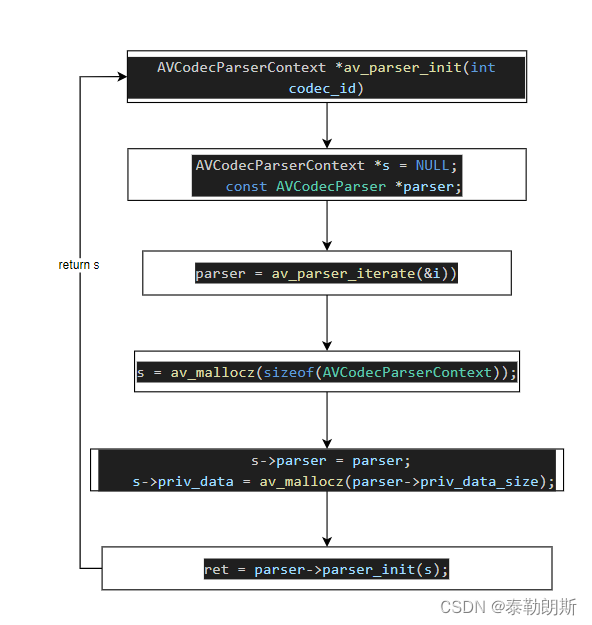
第二个函数也很简单av_parser_parse2,内部其实也是对parser_parse的封装。
int av_parser_parse2(AVCodecParserContext *s, AVCodecContext *avctx,
uint8_t **poutbuf, int *poutbuf_size,
const uint8_t *buf, int buf_size,
int64_t pts, int64_t dts, int64_t pos){
...
index = s->parser->parser_parse(s, avctx, (const uint8_t **) poutbuf,
poutbuf_size, buf, buf_size);
...
}
第三个函数av_parser_close就更加简单了
void av_parser_close(AVCodecParserContext *s)
{
if (s) {
if (s->parser->parser_close)
s->parser->parser_close(s);
av_freep(&s->priv_data);
av_free(s);
}
}
上面全部是架构代码,如果想要查看详细的解析过程,可以单独看每个插件的内容,也就是那三个函数。
支持的AVCodecParser
extern const AVCodecParser ff_aac_parser;
extern const AVCodecParser ff_aac_latm_parser;
extern const AVCodecParser ff_ac3_parser;
extern const AVCodecParser ff_adx_parser;
extern const AVCodecParser ff_amr_parser;
extern const AVCodecParser ff_av1_parser;
extern const AVCodecParser ff_avs2_parser;
extern const AVCodecParser ff_avs3_parser;
extern const AVCodecParser ff_bmp_parser;
extern const AVCodecParser ff_cavsvideo_parser;
extern const AVCodecParser ff_cook_parser;
extern const AVCodecParser ff_cri_parser;
extern const AVCodecParser ff_dca_parser;
extern const AVCodecParser ff_dirac_parser;
extern const AVCodecParser ff_dnxhd_parser;
extern const AVCodecParser ff_dolby_e_parser;
extern const AVCodecParser ff_dpx_parser;
extern const AVCodecParser ff_dvaudio_parser;
extern const AVCodecParser ff_dvbsub_parser;
extern const AVCodecParser ff_dvdsub_parser;
extern const AVCodecParser ff_dvd_nav_parser;
extern const AVCodecParser ff_flac_parser;
extern const AVCodecParser ff_g723_1_parser;
extern const AVCodecParser ff_g729_parser;
extern const AVCodecParser ff_gif_parser;
extern const AVCodecParser ff_gsm_parser;
extern const AVCodecParser ff_h261_parser;
extern const AVCodecParser ff_h263_parser;
extern const AVCodecParser ff_h264_parser;
extern const AVCodecParser ff_hevc_parser;
extern const AVCodecParser ff_ipu_parser;
extern const AVCodecParser ff_jpeg2000_parser;
extern const AVCodecParser ff_mjpeg_parser;
extern const AVCodecParser ff_mlp_parser;
extern const AVCodecParser ff_mpeg4video_parser;
extern const AVCodecParser ff_mpegaudio_parser;
extern const AVCodecParser ff_mpegvideo_parser;
extern const AVCodecParser ff_opus_parser;
extern const AVCodecParser ff_png_parser;
extern const AVCodecParser ff_pnm_parser;
extern const AVCodecParser ff_rv30_parser;
extern const AVCodecParser ff_rv40_parser;
extern const AVCodecParser ff_sbc_parser;
extern const AVCodecParser ff_sipr_parser;
extern const AVCodecParser ff_tak_parser;
extern const AVCodecParser ff_vc1_parser;
extern const AVCodecParser ff_vorbis_parser;
extern const AVCodecParser ff_vp3_parser;
extern const AVCodecParser ff_vp8_parser;
extern const AVCodecParser ff_vp9_parser;
extern const AVCodecParser ff_webp_parser;
extern const AVCodecParser ff_xbm_parser;
extern const AVCodecParser ff_xma_parser;
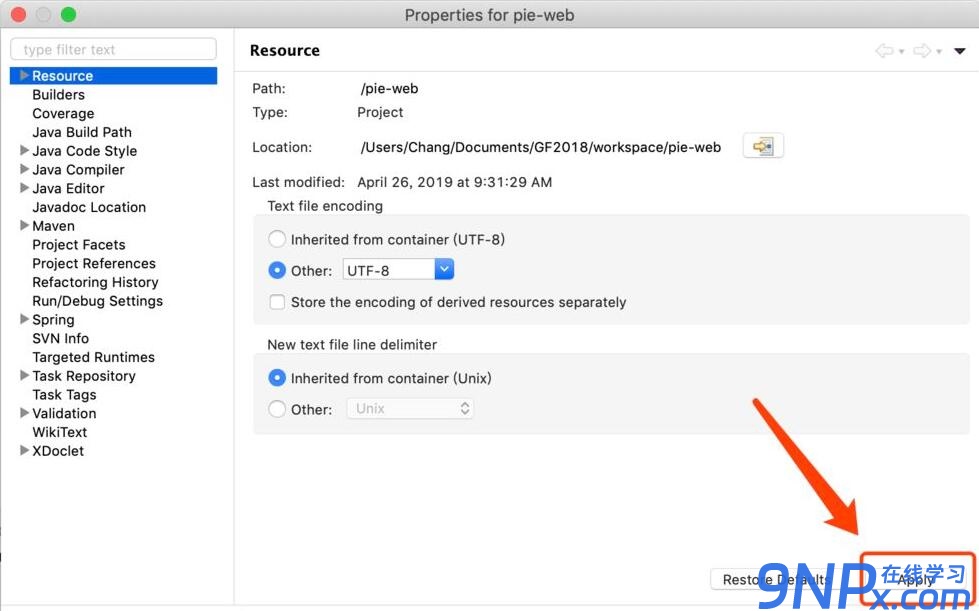
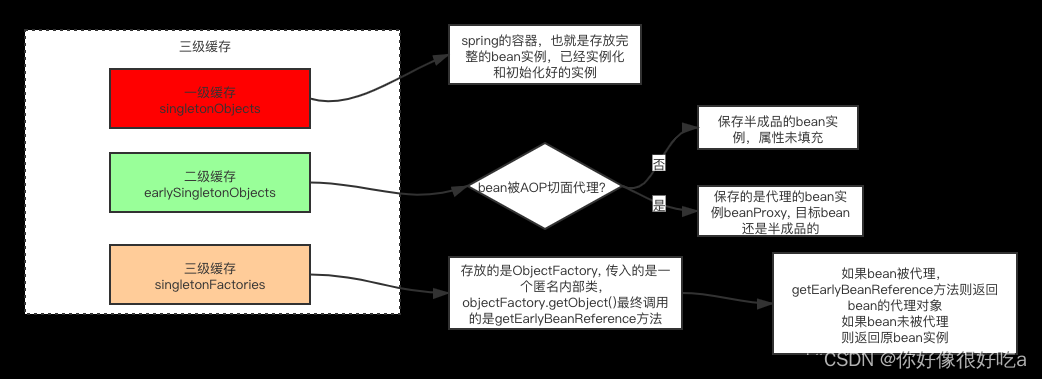
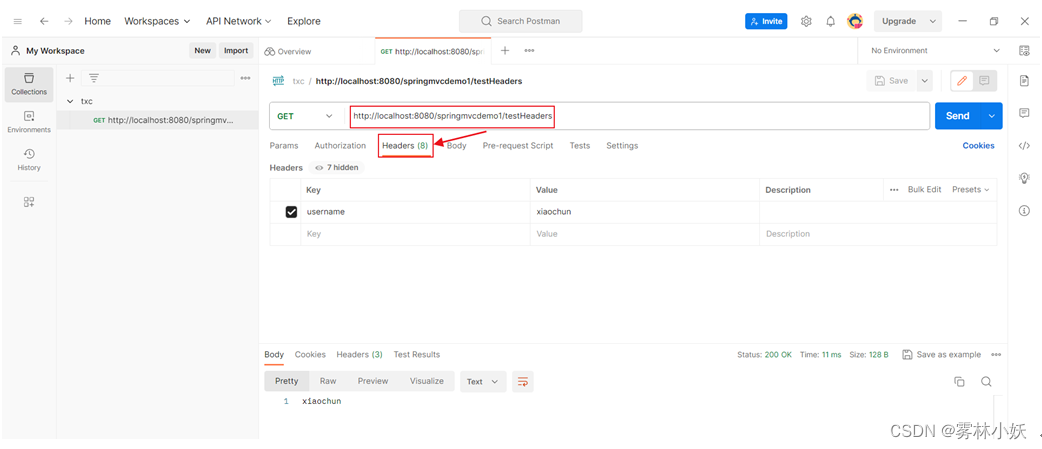

![PyCharm连接远程服务器上Docker容器,使用远程服务器的python intercepter解释器和GPU资源 [本地调试深度学习代码]](https://img-blog.csdnimg.cn/direct/6f4b5c56bdc74b498bfbbdff716417d5.png)
